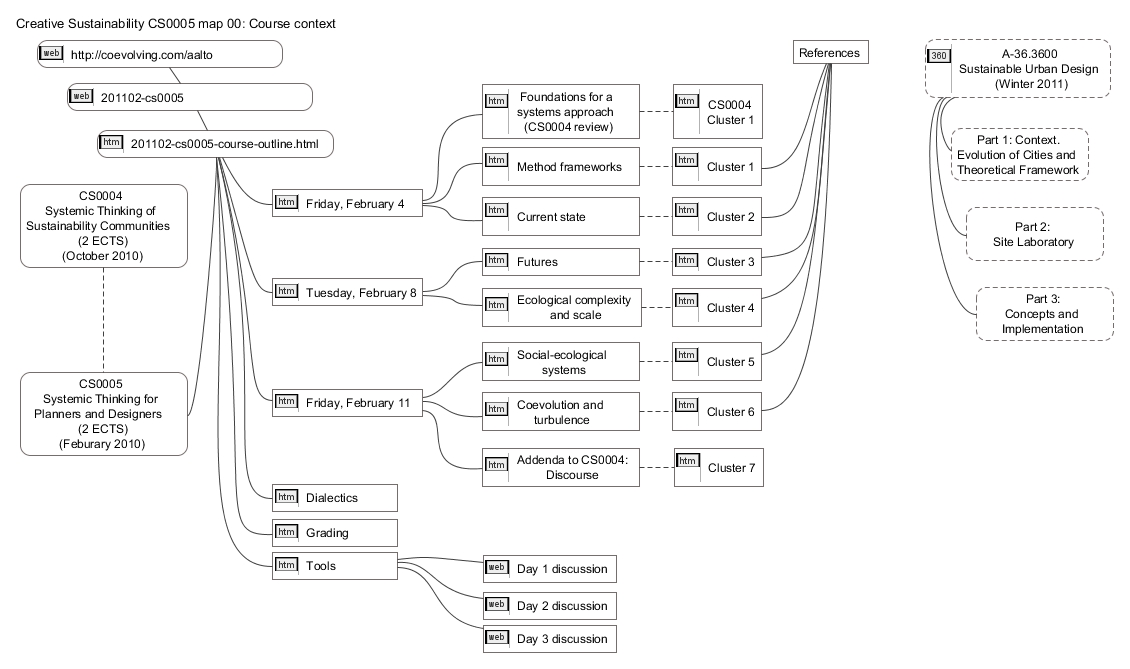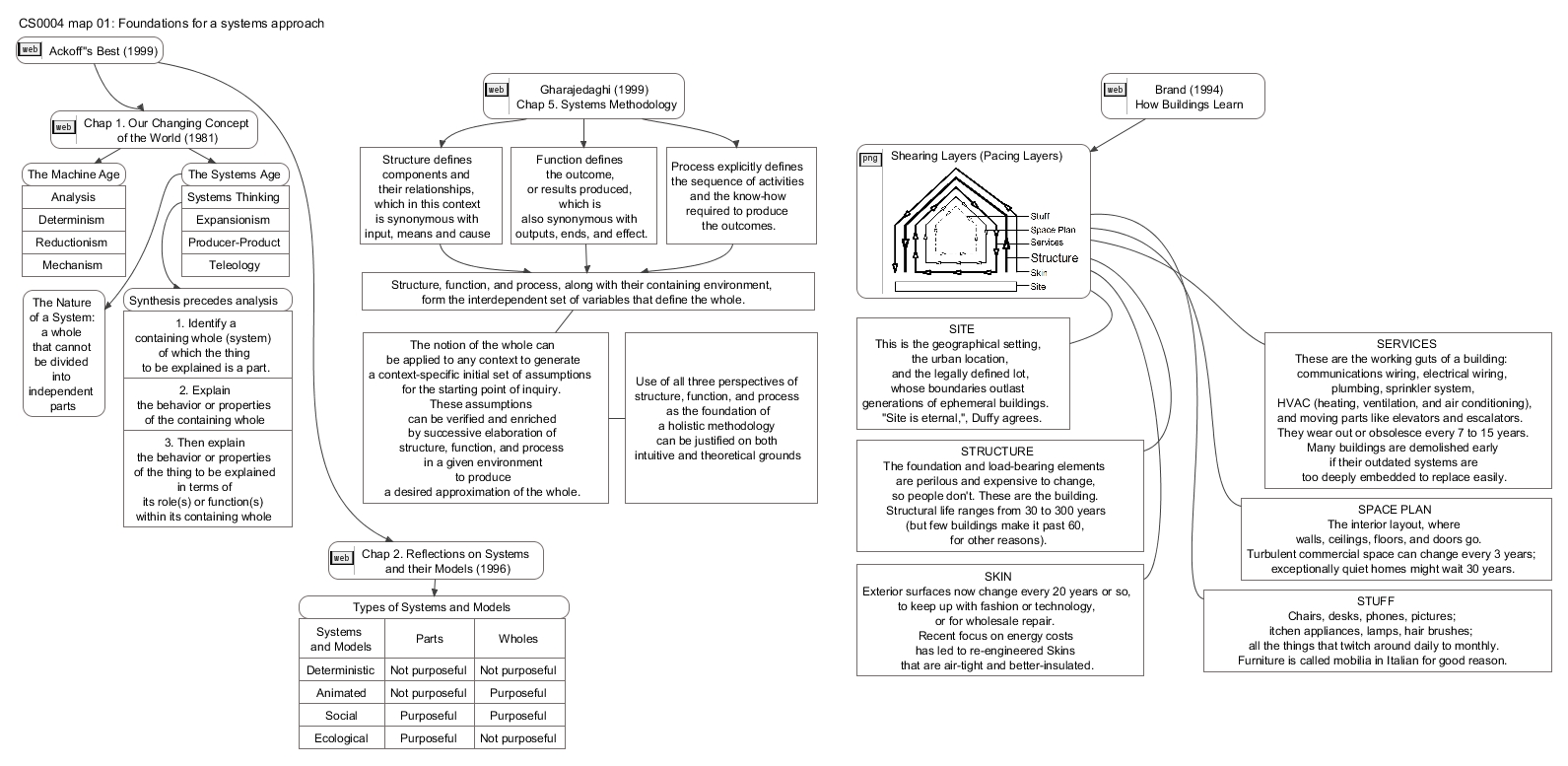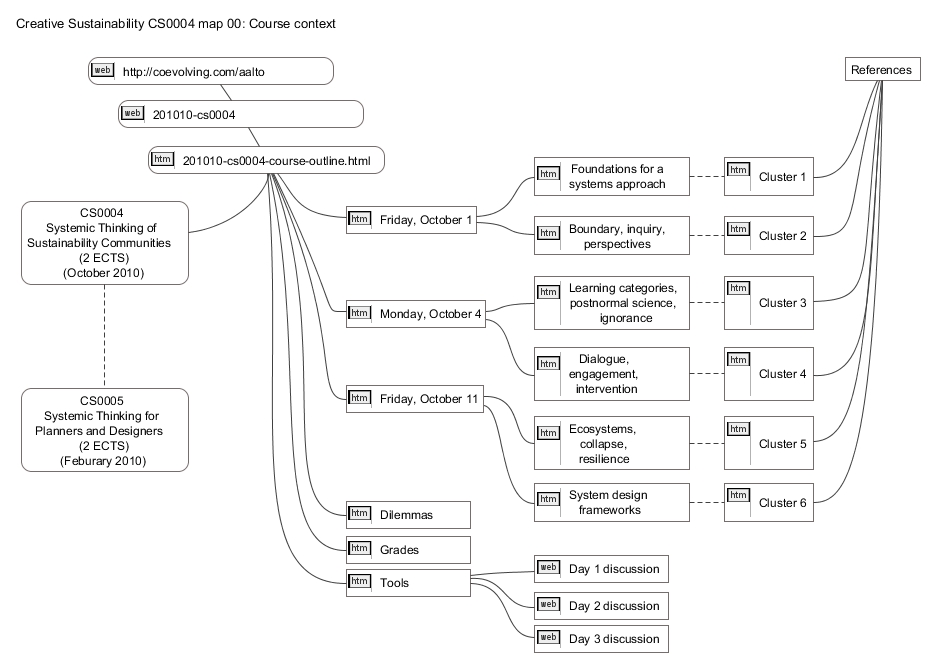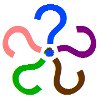On the discussion list of the Systems Science Working Group, there’s a request to comment on the Overview of Systems Science wiki page (draft version 0.5) that is part of the Guide to Systems Engineering Book of Knowledge. Basic descriptions are hard to write. Asking the “what is …” question is a challenge of ontology, and may not cover the “why …” question coming from the perspective of teleology or the “how …” question coming from the history and philosophy of science.
I appreciate that novices like definitions. In a scholarly style, I generally cite descriptions by individual thinkers who each have a system of ideas. In an attempt to appreciate commonalities and differences between prominent figures in the systems movement, I had been hosting a series of Systems Sciences Connections Conversations aimed at traversing social ties between individuals. As a fun example, we asked Allenna Leonard if Stafford Beer and Jane Jacobs knew each other, as they both lived in the Annex neighbourhood in Toronto. Allenna’s response was, of course, they would see each other in places like the drug store. Stafford Beer did use Cities and the Wealth of Nations as a foundation for his work in Uruguay, but there wasn’t really an occasion for ongoing collaboration. Developing a network of systems of ideas is a more modest endeavour than trying to create a system of system of ideas.
Describing the world in objective entities isn’t the way I think. … Read more (in a new tab)






